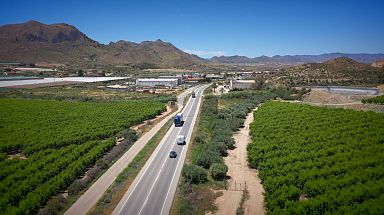The Spanish region of Murcia has set up a programme to help refugees find work. Smart Regions went there to find out more.
The Spanish region of Murcia has set up a programme to help refugees find work. The innovative European-backed project provides training for both the individuals and companies that hire them. Smart Regions went to Murcia to find out more.
Improving people's chances
It's estimated more than 600 refugees currently live in the region of Murcia in southeast Spain. Local authorities say three-quarters of that number are people of working age.
Originally from Mali, Bougary, first arrived in the Canary Islands by boat. After moving to Murcia he heard about an initiative helping refugees to find work and assimilate into society.
The scheme sees NGOs work directly with Spain's employment and training service. Each refugee has a single point of contact.
"She [the advisor] was the one who helped us to get on the training courses. I did some training in masonry, commerce and tiling," Bougary said.
Advisors from Spain’s Employment and Training Service, called SEF, assess the refugee’s language and mathematical skills and employability to create a tailor-made training plan.
"Our mission is to help them, especially in the first six months when they cannot work. We offer them a training course that doesn't require study, or if they have university degrees, they can do a certification course to enter the labour market," said Maria del Mar Alarcón.
The project's total budget is 157,500 euros. 25 percent of that came from the European Social Fund. The region of Murcia and the Spanish government provided the rest.
Around 650 people are said to have already benefited from the scheme.
The initiative also sees Spain’s Employment and Training Service (SEF) provide advice and support to companies that hire refugees. Explaining his decision to take on Bougary, Miguel López Carrasco said: "After we hired him...they called us from the SEF. In the end, I decided to hire him just a week after I met him... and today he has been with us for three or four months and we decided to give him a permanent contract."
The initiative, which works with four NGOs, including the Red Cross, helps refugees with housing, training and any necessary paperwork. On average it can take six months to get the proper legal documentation.
José Luis' family fled Colombia. His wife and two older daughters are already working, while he is completing his training in hotel management
"We left the country because of countless threats. Do I have any hopes or aspirations? Many. I want to study and I am already doing so thanks to the SEF. What you want most as a parent is to give your children a future... and here I know you can."












